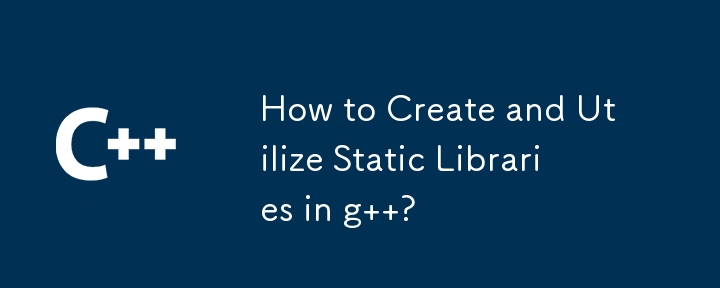<?php
class FanyiAction extends Action {
public function _empty(){
header("HTTP/1.0 404 Not Found");
$this->display("Public:404");
}
public function index()
{
$User = A("Index");
$User->head();
$User->right();
$User->footer();
$this->display();
}
public function fanyi()
{
$value=$_POST['value'];
$from="auto";
$to="auto";
$value_code=urlencode($value);
$appid="xxxxxxxx";//这里填写你在百度上申请的API key
$languageurl = "http://openapi.baidu.com/public/2.0/bmt/translate?client_id=" . $appid ."&q=" .$value_code. "&from=".$from."&to=".$to;
$text=json_decode($this->language_text($languageurl));
$text = $text->trans_result;
$rs=$text[0]->dst;
$this->assign('value',$value);
$this->assign('rs',$rs);
$User = A("Index");
$User->head();
$User->right();
$User->footer();
$this->display('index');
}Baidu Translation is an online translation service released by Baidu. It relies on the advantages of Internet data resources and natural language processing technology to help users bridge the language gap and obtain information and services conveniently and quickly.
Baidu Translation supports translation into 28 popular languages around the world, including Chinese, English, Japanese, Korean, Spanish, Thai, French, Arabic, Portuguese, Russian, German, Italian, Dutch, and Greek English, Estonian, Bulgarian, Polish, Danish, Finnish, Czech, Romanian, Swedish, Slovenian, Hungarian, Vietnamese, Cantonese, classical Chinese and traditional Chinese, covering 756 translation directions.
"The world is complex, Baidu understands you better." Baidu Translate has multiple product forms such as web version and mobile APP. In addition, it also provides open cloud interface services for developers, responding to hundreds of millions of translation requests every day. . In addition to text translation, based on the diverse translation needs of users, it has launched functions such as web page translation, online definitions, massive example sentences, authoritative dictionaries, offline translation, voice translation, conversation translation, practical spoken language and photo translation, allowing users to enjoy every translation experience.
On February 28, 2013, based on mobile phone usage scenarios, Baidu Translation officially launched the Android mobile client, and on March 7, 2013, the iOS mobile client was officially released. In May 2015, the neural network translation (NMT) system was released, which is the world's first Internet NMT online product. In June 2015, the offline NMT system for mobile phones was released, supporting multiple languages such as Chinese, English, Japanese and Korean. On July 5, 2016, Baidu Human Translation was officially released, providing users with paid and accurate human translation services, and is committed to more comprehensively meeting the translation needs of users in different scenarios.
All resources on this site are contributed by netizens or reprinted by major download sites. Please check the integrity of the software yourself! All resources on this site are for learning reference only. Please do not use them for commercial purposes. Otherwise, you will be responsible for all consequences! If there is any infringement, please contact us to delete it. Contact information: admin@php.cn
Related Article
 How Do I Link Static Libraries That Depend on Other Static Libraries?
How Do I Link Static Libraries That Depend on Other Static Libraries?
13 Dec 2024
Linking Static Libraries to Other Static Libraries: A Comprehensive ApproachStatic libraries provide a convenient mechanism to package reusable...
 How to Silence TensorFlow\'s Debugging Output?
How to Silence TensorFlow\'s Debugging Output?
28 Oct 2024
Suppression of Tensorflow Debugging OutputTensorflow prints extensive information about loaded libraries, found devices, and other debugging data...
 How Does jQuery Simplify DOM Manipulation for Web Developers?
How Does jQuery Simplify DOM Manipulation for Web Developers?
03 Jan 2025
Overflow: Hidden and Expansion of HeightjQuery distinguishes itself from other JavaScript libraries through its cross-platform compatibility and...
 Which native Java image processing library is right for you?
Which native Java image processing library is right for you?
30 Oct 2024
Native Java Image Processing Libraries for High-Quality ResultsAs you have encountered limitations with ImageMagick and JAI, let's explore other...
 How to Create and Utilize Static Libraries in g ?
How to Create and Utilize Static Libraries in g ?
24 Oct 2024
This article guides developers on crafting static libraries in C using g . It demonstrates how to compile source code into object files, create static libraries, and incorporate them into other projects. By leveraging this approach, developers can
 How to Execute Command Line Binaries in Node.js?
How to Execute Command Line Binaries in Node.js?
27 Dec 2024
Executing Command Line Binaries in Node.jsExecuting third-party binaries is an essential task when porting CLI libraries from other languages to...


Hot Tools

PHP library for dependency injection containers
PHP library for dependency injection containers

A collection of 50 excellent classic PHP algorithms
Classic PHP algorithm, learn excellent ideas and expand your thinking

Small PHP library for optimizing images
Small PHP library for optimizing images




